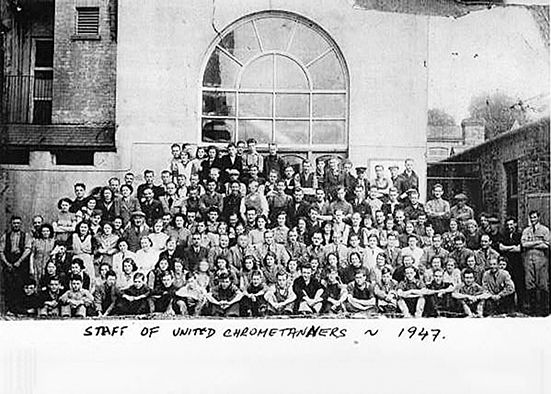History project looks back at Jewish family’s links to Shrigley
History project looks back at Jewish family’s links to Shrigley
30 March 2022

THE remarkable contribution of Jewish families in saving Shrigley has been recalled in a unique history project.
The story of how Jews, fleeing the Holocaust and Hitler's murderous purge in Europe, started arriving in the village just before the start of the Second World War and helped transform the fortunes of villagers after the Hungry Thirties is largely forgotten.
But more than 80 years later, Shrigley's legacy is featuring in an on-line interactive map telling the stories of Jewish families who have left a lasting impact on Northern Ireland.
Steven Jaffe has been researching the heritage of the Jewish community across Northern Ireland.
“The goal of the Belfast Jewish Heritage project/Shared History fund is to locate, preserve, document and make publicly available material relating to the Jewish community in Northern Ireland,” said Mr Jaffe.
“It shows 60 sites across Northern Ireland, including Shrigley, Saintfield and Downpatrick. We were delighted to learn from Chris Hagan of the
impact of the Jewish community in Shrigley and include it in our overall project.
“People can click on the location to learn more about the Jewish story connected to the site. Some of the sites are fairly obvious — like former synagogues in Belfast — but others — like Shrigley — will come as a surprise to many, even in the Jewish community.
“Thanks to the work of Chris and others the remarkable contribution made by the Utitz family and fellow refugees to the people of Shrigley will not be forgotten.''
Led by the Utitz and Weiniger families, they set up United Chrome Tanners, a highly successful leather tannery, and a series of associated businesses.
Among the names recorded are the Utitz brothers, Alfred and Jacob, and their son Erik.
Other refugees connected with the business were Walter Weiniger from Austria, who opened Marybag factories in Killyleagh and Belfast which finished handbags, and the first managing director of United Chrome Tanners, Mr Horenovsky.
The Jewish families were welcomed with open arms in Shrigley. Villagers had suffered from the awful impact of the Hungry Thirties in one of the most socially deprived regions of the UK after the closure of the village spinning mill in 1930.
By November 1939 United Chrome Tanners were employing 90 people tanning sheep skins and cattle hides for shoes, handbags and clothing.
Within less than 30 years they were a world leader, employing more than 500 people and under the leadership of Erik Utitz became the first NI winners of the Queen's award for exports.
Leather tanning eventually died out in the village in 2004.
Details of the Jewish project, which received funding from the National Lottery Heritage Fund, can be found at this website: www.belfastjewishheritage.org.


